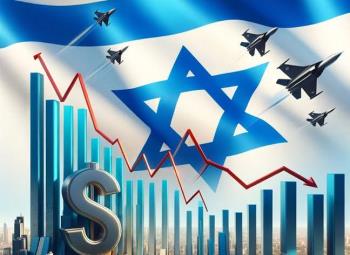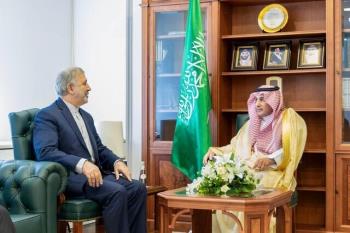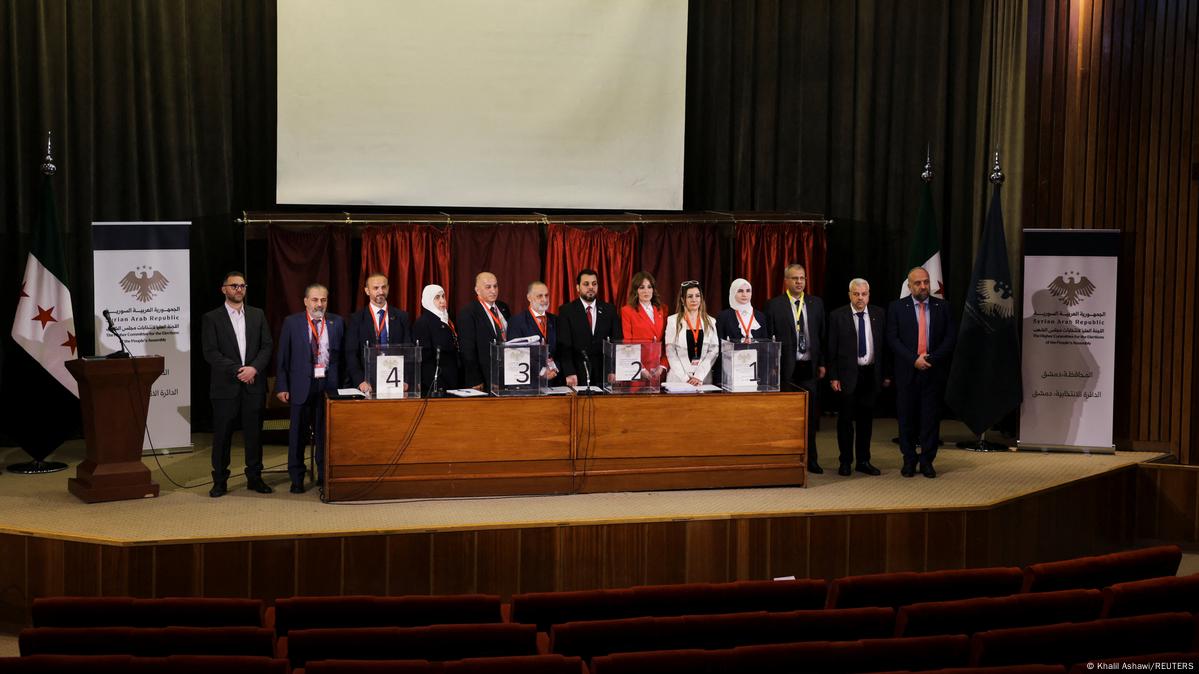Alwaght- Ten months after fall of President Bashar al-Assad and assumption of power by armed militias, Syria is holding its first parliamentary election that is leveraged by the new rulers of Damascus to win legitimacy.
On Sunday, 1587 candidates have raced to win 140 seats in the national parliament. These seats are distributed in 60 constituencies in various provinces except Suwayda, Raqqa, and Hasakah.
In a further consolidation of power, the self-proclaimed "interim president," Ahmad al-Shara (also known by his nom de guerre as Abu Muhammad al-Jolani), will directly appoint 70 additional parliamentary seats. This move will expand the assembly to 210 members.
The new electoral system, based on a model of representation, grants voting rights exclusively to a body of approximately 6,000 selected elites, community leaders, and representatives of various social groups. The mechanism is being implemented under the president's "constitutional declaration" and a 2025 presidential decree (No. 66) that established a higher electoral commission.
Nawar Nejmah, a spokesperson for the Syrian electoral committee, stated that "the election will be conducted based on a new mechanism designed to ensure broad public participation, so that all Syrian groups can have representation in the council."
However, this claim is challenged by the conspicuous absence of candidates from Suwayda province and northeastern Syria, raising serious questions about the true inclusivity of the parliament and whether all minority groups will be genuinely represented.
To justify this non-democratic process, the regime of al-Jolani has argued that accurate voter registration and a popular vote are currently impossible due to the displacement of millions of Syrians by the ongoing conflict. It claims this indirect method is a temporary measure until new legal frameworks can be developed.
Building legitimacy for new regime
Through holding these elections, the interim president wants to show to the world that the new rule in Syria stems from the public will and he intends to firm a psudo-democratic framework to run the country. But the key question is: Will sole arranging of ceremonial elections can win true legitimacy for a government whose pillars resting on violence?
The important issue is that if it was to measure the legitimacy, in the first step al-Sharaa should have put himself to public vote to see if the Syrian society accepts him in this position. So, in the absence of a presidential election, any parliamentary voting is a kind of a political game to establish Al-Sharaa rather than a true democratic process.
One-third of seats under al-Jolani’s control
The current electoral process bears no resemblance to a genuine democracy. The vote is being conducted indirectly, with two-thirds of the representatives selected by regional committees, effectively disenfranchising the ordinary public.
Furthermore, the 6,000 members of these local committees, tasked with electing the majority of the parliament, are not true representatives of the people. They themselves were appointed by the interim regime.
The democratic facade frays further when considering that the remaining third of the seats are not even subject to this committee vote. They will be directly handpicked by al-Jolani himself. This structure reveals the entire "representative" system as a mere tool for consolidating his personal power, rendering any claim of popular legitimacy meaningless.
This pre-arranged distribution of seats makes one thing clear: despite the propaganda from Ahmad al-Shara, the rulers in Damascus lack a real social base. To conceal this void, they have resorted to a tightly controlled and selective appointment process.
Depriving religious minorities
One of the issues that questions the claims of the vote being a democratic process is deprivation of the ethnic and religious minorities of their rights whereas they account for a major part of the Syrian population. Since these minorities are opposed to al-Jolani, the election results would have been otherwise should the people could truely cast their votes.
The Damascus rulers are well aware that any free and universal election would expose the profound legitimacy crisis of the militant factions. This is precisely why the al-Jolani-led government has barred the public from participating directly in the voting process. Even in areas where the election is being held, many residents, including Alawites, oppose his regime and would undoubtedly boycott a staged and selective poll.
Consequently, the electoral process in Hay'at Tahrir al-Sham- controlled territories less resembles a democratic exercise and more closely mirrors a tribal model of governance. Al-Sharaa is not a president in any true sense of the word; he functions more as a caliph—a role he long aspired to—who now governs by adapting his image to the times with a modern veneer.
As a result, his power structure is fundamentally akin to that of traditional Persian Gulf Arab monarchies, where the ruler appoints the majority of representatives and the council serves a purely consultative and ceremonial function.
In essence, this method is a political cover designed to deceive both domestic and international public opinion with the appearance of popular participation. By staging this political theater, the leaders of Tahrir al-Sham can claim to have initiated a democratic process under the opposition's banner, while in practice, they are doing nothing but cementing the foundations of an illegitimate regime.
West's double standards
One of the prominent points about the Syrian parliamentary elections is the different reaction of the West. In the past years, when al-Assad held an election with over 80-percent turnout amid a devastating civil war and a majority of Syrians voted for him as he championed the battle against terrorism, the US and European countries labelled his elections illegal and him illegitimate. Their main argument was that thr vote was not held Ina democratic atmosphere. But now that al-Jolani is holding a totally undemocratic election, these powers are turning a blind eye.
Going beyond mere silence, Western governments are now actively bolstering the newly established regime by lifting sanctions and taking steps such as reopening embassies. This behavior lays bare the West's double standards, where a government's legitimacy is judged not by the will of its people, but by its alignment with Western geopolitical interests. This approach profoundly undermines public trust in the West's democratic proclamations, revealing that international politics is often driven by the interests of powerful states, not the rights and will of nations.
In general, the election has been meticulously designed to cement al-Jolani's power, not to empower the Syrian people and give them the strength to shape their own destiny. Such a process can only entrench autocracy in new Syria. A society where significant segments are deprived and its representatives are appointed by a single, illegitimate military leader can never claim to be a democracy. In reality, a parliament formed in this manner hardly goes beyond being a ceremonial body.



























